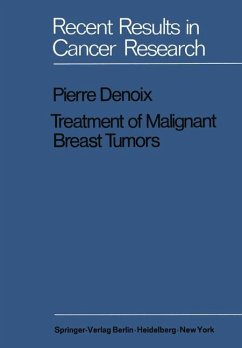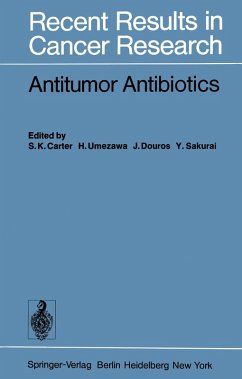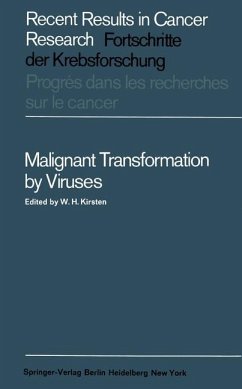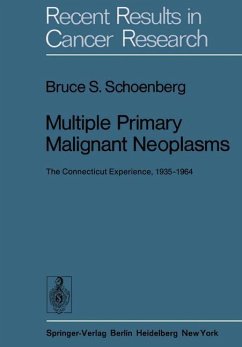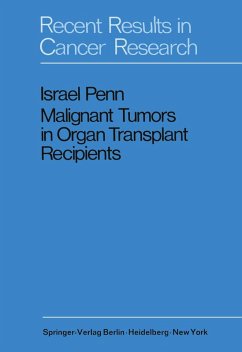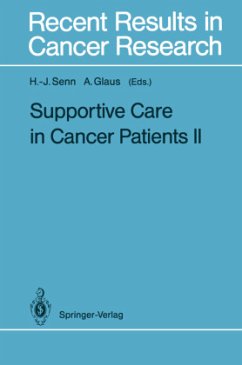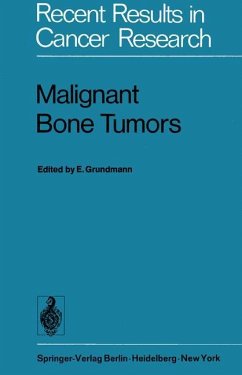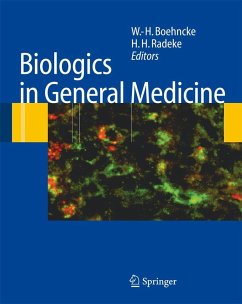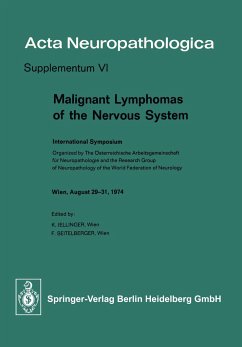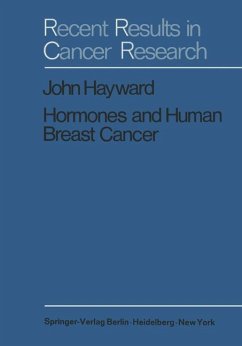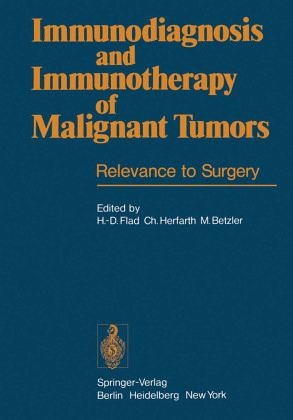
Immunodiagnosis and Immunotherapy of Malignant Tumors
Relevance to Surgery
Herausgegeben von Flad, H.-D.; Herfarth, C.; Betzler, M.

PAYBACK Punkte
39 °P sammeln!
The concept of immunologic responses against tumors is currently under intense scrutiny throughout the world. The evidence for the existence of tumor-specific transplantation antigens (TSTA) and specific immune reactions to them in experimental animals is overwhelming. The available data concerning human tumors are controversial. The reason for this is partially that antigens detectable on human tumors by in vitro assays have not been biologically characterized. In other words, we do not know if the antigens on human tumors are acting as the targets for immunologically mediated rejection proce...
The concept of immunologic responses against tumors is currently under intense scrutiny throughout the world. The evidence for the existence of tumor-specific transplantation antigens (TSTA) and specific immune reactions to them in experimental animals is overwhelming. The available data concerning human tumors are controversial. The reason for this is partially that antigens detectable on human tumors by in vitro assays have not been biologically characterized. In other words, we do not know if the antigens on human tumors are acting as the targets for immunologically mediated rejection processes in vivo. It was the purpose of this workshop to bring experimental tumor immunologists and clinical oncologists together in order to disclose facts and limits in tumor immunology. Clinicians were to learn how shaky the ground becomes once the experimentalist looks beyond the edge of the mouse cage. Tumor biologists heard the clinicians' urgent cry for controlled randomized trials of immunotherapy which thus reflects clearly that immunotherapy in its present form without knowledge of dose-effect-relationship does not work. Nobody would deny that the problem of human cancer smells of immunology, but since we are just about to taste it the essential ingredient might be different. In other words one might look at present rather at immunological epiphenomena than at mechanisms of tumor immul1lty operating in vivo. This problem was among others a central issue of this workshop.





